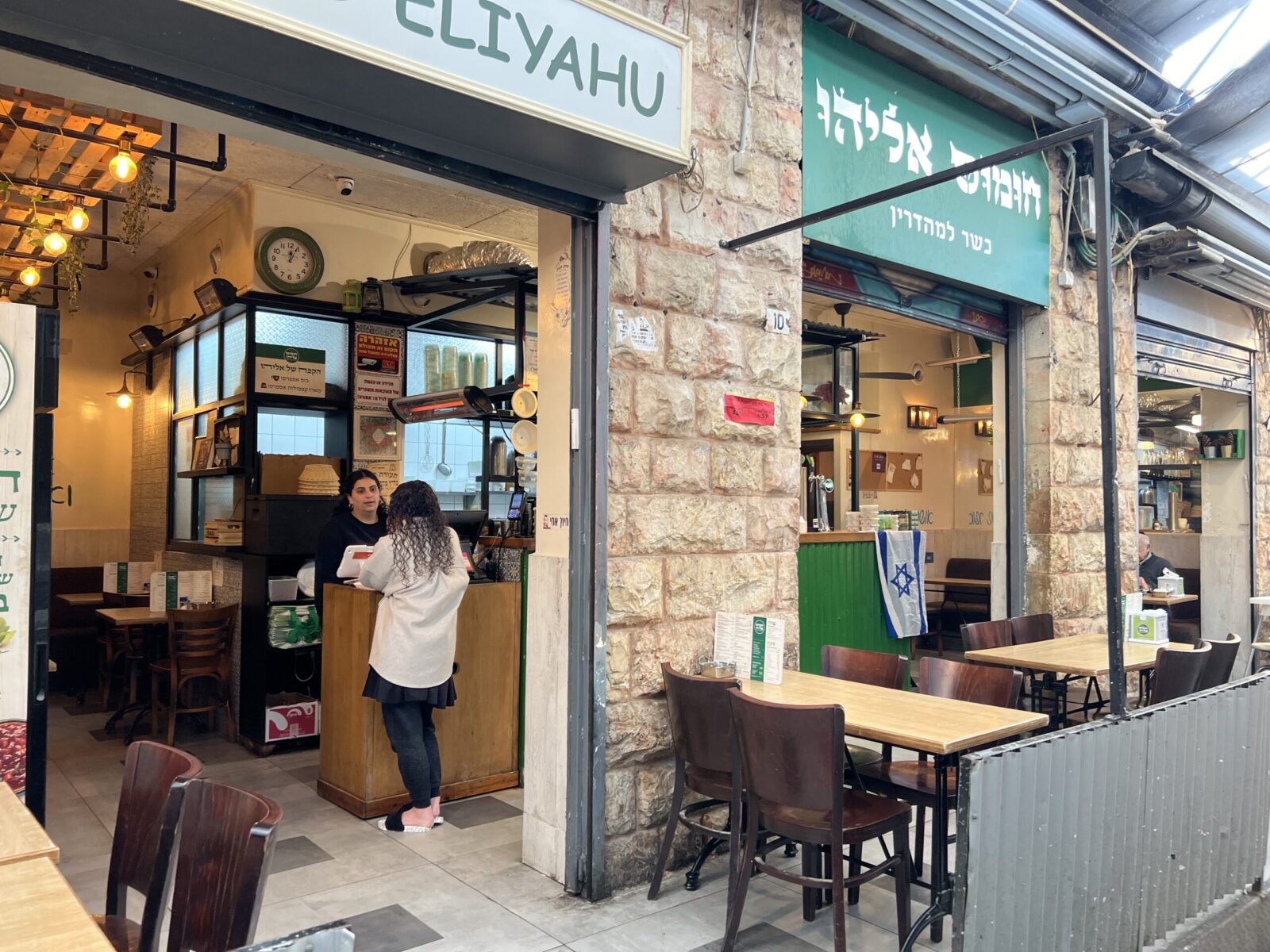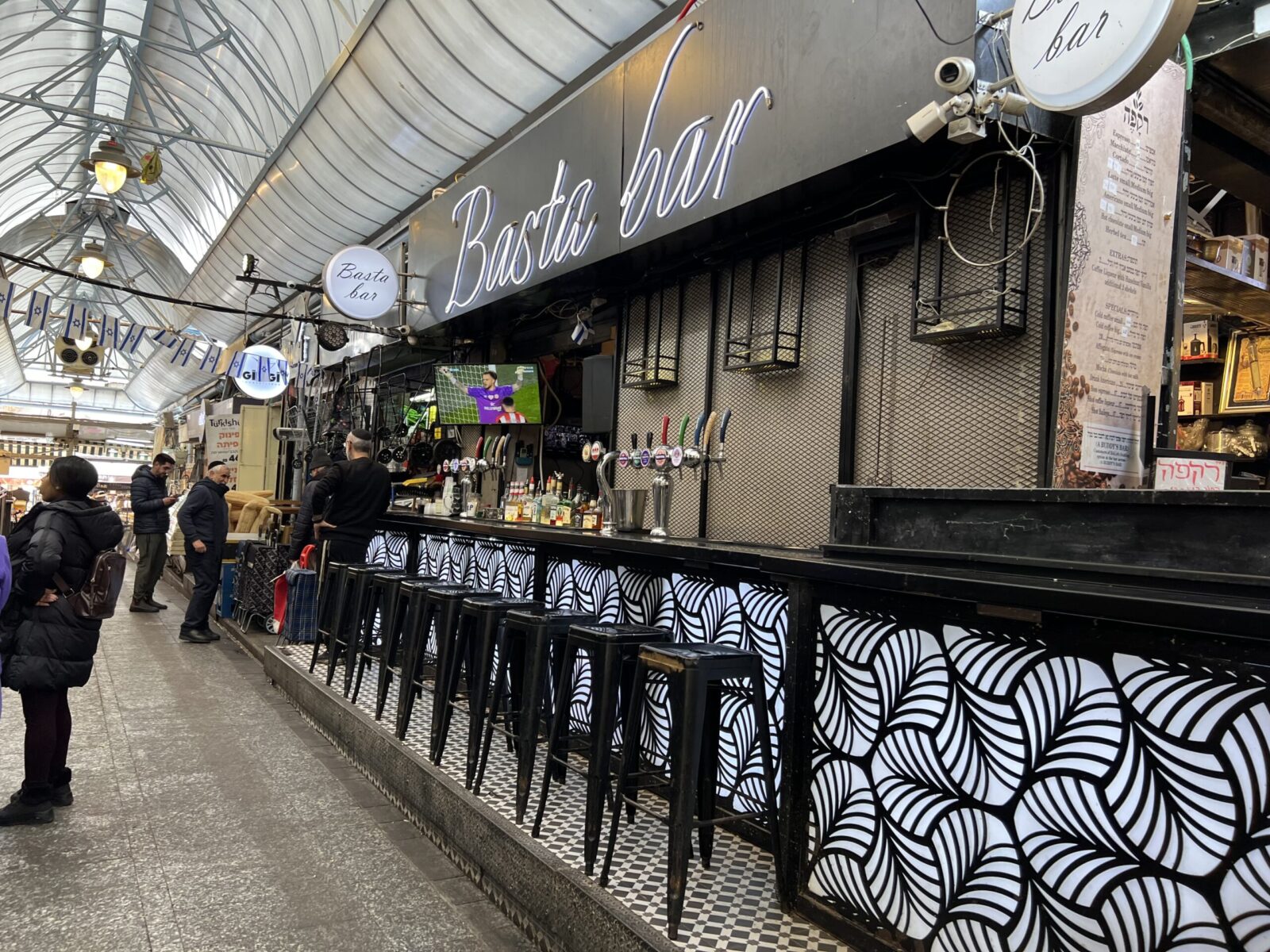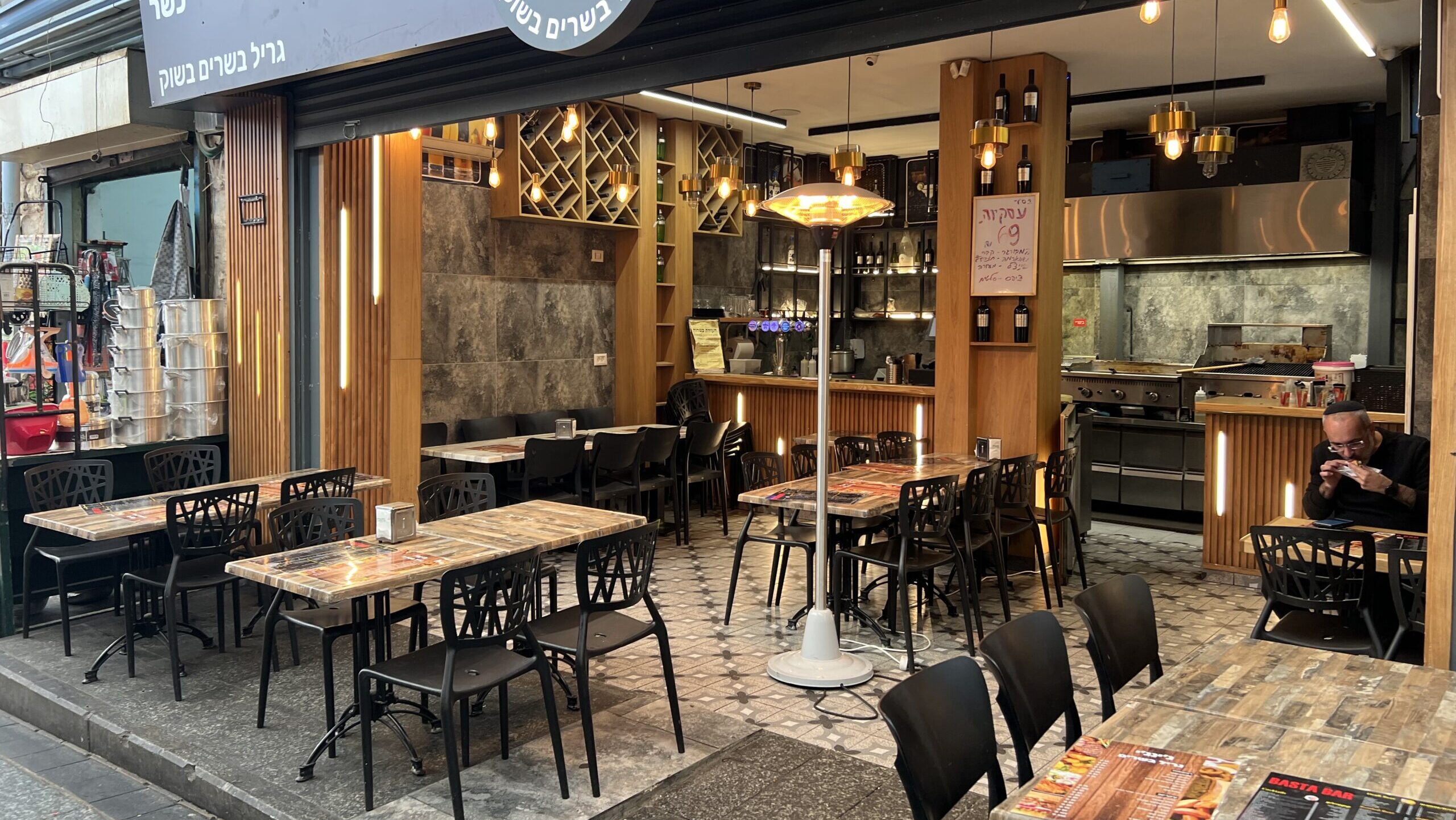While War Leaves Many Israeli Restaurants Closed or Struggling, Some Brave New Eateries Dare To Open
With rocket attacks, almost no tourism, and many Israelis away on military reserve duties, the restaurant industry has been hit hard … but new restaurants are still opening, and some Israelis want to forget their troubles by dining out
Israeli restaurants have been hit hard in the four months since Hamas terrorists attacked southern Israel and war ensued in the Gaza Strip.
In 2020, Israel’s Central Bureau of Statistics reported a 40% decline in the food service-hotel restaurant sector as a result of the COVID pandemic.
The sector had been expected to recover and even grow by 2023, but the outbreak of war on Oct. 7 has forced many restaurants to make significant operational changes and has left them struggling economically.
Restaurants in the southern and central regions of Israel faced closures, both because of continuous Hamas rocket attacks and because of severe damage to the agricultural areas of the south, which supply produce to restaurants across Israel.
The Institute for National Security Studies at Tel Aviv University recently released a report highlighting the impact of the war on Israel’s food supply chain. It mentions challenges stemming from a shortage of foreign agricultural workers, difficulties in securing skilled workers, a reduced workforce caused by Israelis being either hesitant to take up vacated positions or busy doing military service, and a lack of imports of energy and food products due to attacks on shipments in the Red Sea.
The study showed that disruptions in one area could trigger a negative domino effect throughout the entire food industry of the country.

A trickle of customers at an eatery at Jerusalem’s Machane Yehuda market, Feb. 6, 2024. (Felice Friedson/The Media Line)
The Media Line spoke with Tomer Moore, the CEO of Misadanim, a nonprofit organization that aims to work for the benefit of the Israeli restaurant industry, who said there were several reasons for the closure of many local restaurants during the war.
“First of all, it is important to mention that there are two places in Israel where restaurants are closed without any return dates that we know of, and that is, all restaurants up to 5 kilometers from the Lebanon and Syrian border up north, and all those near the Gaza border,” he said.
“In Jerusalem, we have a decline in customers, and the simple reason for that is because a lot of people are in the [military] reserves. A lot of these people are men and business owners, and they too were called up in the reserves. There is a lack of people and manpower,” he said.
In addition, tourism, a significant source of customers for restaurants around the country, has fallen significantly since the war began.
And the displacement of thousands of Israelis from the south and the north into hotels has disrupted their normal functioning.
Katy’s, a high-end French restaurant in Jerusalem, has felt the impact of the war strongly. The owner, Katy, told The Media Line that her customers were mainly tourists and visiting officials, and they had stopped coming to her restaurant. As a result, her income had noticeably declined since the outbreak of the war.
“My restaurant is built mainly on high-level, quality customers, like from the King David Hotel, returning customers, but all the tourists have disappeared. I’ve been deeply affected; I only make 10% of my usual income,” she said.
The Tourism Ministry recently released a report stating that only 180,000 tourists entered Israel in the last quarter of 2023, against an expectation of 900,000. In January, only 58,600 tourists entered the country.
Nimrod Norman, the head chef of O2 Restaurant at the Inbal Hotel, told The Media Line that while tourists play a crucial role in supporting the restaurant, so too do local residents.
In our restaurant, we never really based our operations only on tourists. I think that creates a soulless restaurant. I think you really need to have locals on your side as your regulars.
“I think right away after October 7, what happened was all tourism pretty much died out overnight. I think on the 8th of October, everyone [who was a tourist] was looking for flights out of here. So obviously that has an effect on any hotel and any business in the hospitality industry and the tourism industry,” Norman said.
“In our restaurant, we never really based our operations only on tourists. I think that creates a soulless restaurant. I think you really need to have locals on your side as your regulars.”

Open but seeing few customers … at Jerusalem’s Machane Yehuda market, Feb. 6, 2024. (Felice Friedson/The Media Line)
However, despite the challenges, several new restaurants have opened even during the war.
Lainie and Shmarya Richler, owners of Muffin Boutique, opened their first franchise in Ben Yehuda Street in Jerusalem in 2014. Against the odds, they opened another branch in Daniel Yanovski Street in Jerusalem’s Arnona neighborhood on Oct. 27.
We were inundated on the day we opened. … So many of the customers said, no, we need some normalcy. We need a place to meet, and we need a place that’s close to our home.
“Arnona is such a lovely community and such a supportive community, and we had so many individuals reaching out to us on social media saying, when are you opening already? However, due to the war everything was delayed, and the renovation was delayed. I mean, we were supposed to open on October 10, and that did not happen,” Lainie Richler said.
“We were inundated on the day we opened. Literally, people were waiting down the street, and we were so blown away by that. When I said to people that we really felt like it wasn’t the right time, we deliberated back and forth, maybe to wait until the war was over, but so many of the customers said, no, we need some normalcy. We need a place to meet, and we need a place that’s close to our home.”
Despite the ongoing war, many Israelis look for a sense of comfort and relaxation in eating out.
“I think going to a restaurant is a form of escapism, which allows people to kind of feel alive, feel like they’re getting out of the house and forgetting their day-to-day [troubles] for a couple of hours,” Norman said.
Lana Ikelan is a recent graduate of the Hebrew University of Jerusalem and an intern in The Media Line’s Press and Policy Student Program.


